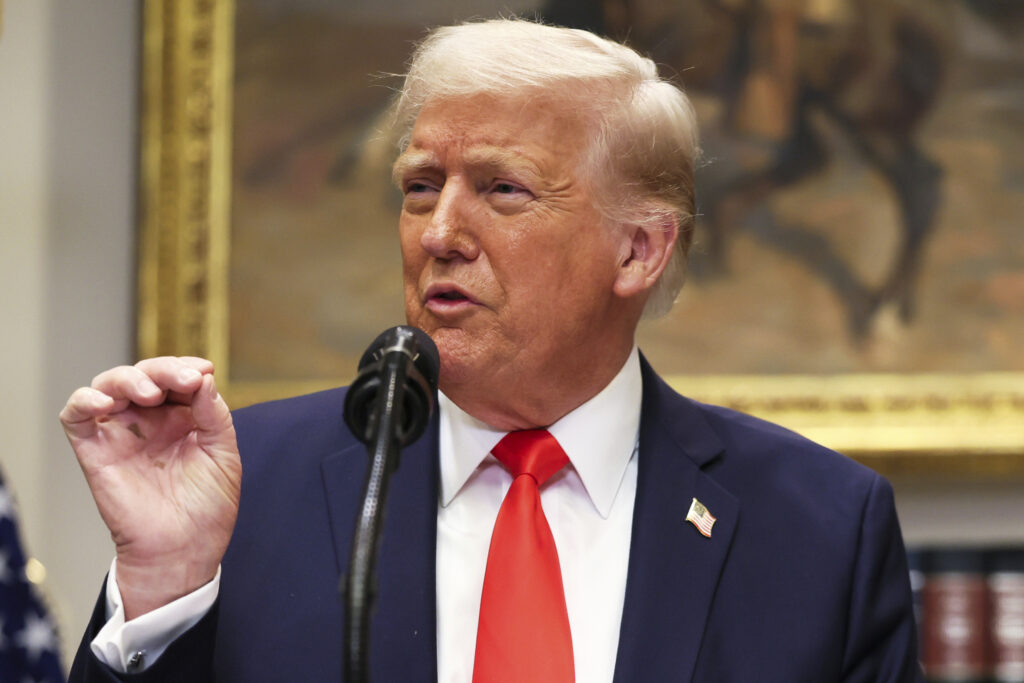
After President Donald Trump issued an executive order Tuesday that experts said could potentially disenfranchise millions, Democratic election officials and voting rights advocates swiftly vowed to fight it.
“This is not a statute. This is an edict by fiat from the executive branch, and so every piece of it can be challenged through the regular judicial process,” Arizona Secretary of State Adrian Fontes (D) said in an interview with Democracy Docket.
Fontes called Trump’s order a “cheap substitute” for the SAVE Act — the GOP’s nationwide proof of citizenship bill — that he doesn’t think will pass through the Senate, but also offered a particularly nefarious reading of its true purpose: setting up a way to cancel the 2026 midterm elections.
“I genuinely believe that the Trump administration wants to cancel the 2026 elections so that he and his party can stay in power,” he said. “And we have to fight like hell against that by every means available.”
“Trump’s executive order is unlawful,” Colorado Secretary of State Jena Griswold (D) said in a statement. “It would prevent eligible Americans from exercising their sacred right to vote. The Trump administration is weaponizing the federal government and trying to make it harder for voters to fight back at the ballot box.”
The ACLU pledged to challenge the order’s legality.
“This is an extreme abuse of power — we’ll see him in court,” the group wrote on Bluesky.
The Democratic election lawyer Marc Elias said his law firm also will sue. (Elias is the founder of Democracy Docket.)
“Moments ago, Donald Trump signed a massive voter suppression executive order,” Elias wrote on Bluesky, “This will not stand. We will sue.”
The election law professor Rick Hasen called the order “an executive power grab” that could “potentially disenfranchise millions of voters.”
“This executive order, if it could survive the inevitable judicial challenge, would severely shift power over federal elections into the hands of the Presidency,” Hasen added.
Wendy Weiser, the vice president for democracy at the Brennan Center for Justice, noted on Bluesky that “the president doesn’t have the power to override a law passed by Congress,” and called the order “the SAVE Act but much worse. It is an illegal power grab that would block tens of millions from voting.”
Outlined in the order are a number of measures that would severely reshape how elections are run in the U.S. — and potentially disenfranchise millions of voters in the process. Chief among them is a proof of citizenship requirement for all Americans who attempt to register to vote or to update registration information through a federal form — a move that would make it much harder for eligible voters to use the form. The order also threatens to punish states that count ballots received after Election Day, along with significant modifications to voting systems and security standards for voting equipment.
“Cutting the very programs that keep elections safe from cyberattacks does not ‘streamline’ national security,” Tim Harper, senior policy analyst of elections and democracy at the Center for Democracy & Technology, said in a statement to Democracy Docket. “Cuts to federal preparedness and cyber support will not reduce ‘taxpayer burdens,’ they’ll actually shift the cost of cybersecurity services to states and counties, and leave communities more open to cyberattacks on schools, emergency services, and local governments.”
